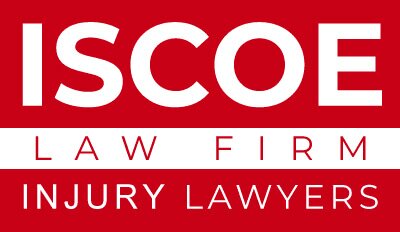Best Toxic Tort Lawyers in Florida
Share your needs with us, get contacted by law firms.
Free. Takes 2 min.
Or refine your search by selecting a city:
List of the best lawyers in Florida, United States
About Toxic Tort Law in Florida, United States
Toxic tort law refers to the legal processes that handle injuries and damages caused by exposure to dangerous substances such as chemicals, pesticides, toxic mold, asbestos, and other hazardous materials. In Florida, people who have suffered harm due to exposure to these toxic substances may have the right to seek compensation through the civil court system. Toxic tort law encompasses both individual lawsuits and class action claims that arise when many people are affected by the same or similar toxic hazards. These cases can involve exposure at the workplace, home, or through consumer products, and often require careful investigation and expert testimony regarding the substance in question and its effects.
Why You May Need a Lawyer
Navigating a toxic tort case can be complex due to the scientific evidence required and the involvement of powerful companies or multiple parties. Some common situations where you may need a lawyer include:
- Exposure to chemicals or hazardous materials in the workplace leading to illness or injury
- Living near industrial sites or landfills where harmful contaminants have impacted your health or property
- Developing health problems due to exposure to substances like asbestos, lead paint, or toxic mold in your home
- Discovering a link between your illness and environmental pollution in your community
- Problems resulting from pharmaceutical drugs or consumer products containing harmful chemicals
A lawyer can help determine whether you have a valid claim, identify liable parties, gather necessary evidence, work with qualified experts, and advocate for your compensation in court or settlement discussions.
Local Laws Overview
Florida’s toxic tort cases are governed by state statutes, federal regulations, and court precedents. Key aspects of the law include:
- Statute of limitations - In Florida, you typically must file a personal injury claim within four years of discovering the injury or damage caused by toxic exposure. For wrongful death resulting from toxic torts, the time limit is usually two years.
- Strict liability and negligence - Defendants can be held liable under both strict liability (when harm is caused by inherently dangerous activities or defective products) and negligence (when someone fails to exercise reasonable care, resulting in toxic exposure).
- Product liability - Manufacturers and distributors may be held responsible for harmful products, especially when they fail to warn consumers about potential risks.
- Environmental regulations - State and federal agencies, such as the Florida Department of Environmental Protection and the Environmental Protection Agency, play a role in regulating hazardous substances and can influence toxic tort cases.
- Class actions vs. individual claims - In cases where toxic exposure affects many people, a class action lawsuit may be filed. However, individual claims are also common, depending on the circumstances.
Frequently Asked Questions
What is a toxic tort case?
A toxic tort case is a legal claim brought by individuals who have been harmed by exposure to hazardous substances, such as chemicals or pollutants.
What are common examples of toxic torts in Florida?
Examples include asbestos exposure, lead poisoning, mold-related illnesses, pesticide exposure, groundwater contamination, and exposure to industrial chemicals.
How do I know if I have a toxic tort claim?
If you have suffered a health problem or property damage due to exposure to a toxic substance and can link your harm to that exposure, you may have a claim. Consulting a lawyer can help clarify your options.
What kind of compensation can I recover?
Compensation may include medical expenses, lost wages, pain and suffering, property damage, and in some cases, punitive damages if the defendant's conduct was particularly harmful.
How long do I have to file a lawsuit?
Florida law generally allows four years from the date you discover your injury to file a toxic tort lawsuit, but there are exceptions. You should consult a lawyer as soon as possible to avoid missing deadlines.
Who can be held liable in a toxic tort case?
Liable parties can include manufacturers, employers, property owners, contractors, and companies responsible for releasing or failing to control hazardous substances.
What kind of evidence is needed?
Evidence often includes medical records, environmental testing, product information, expert testimony, and proof of the defendant's actions or negligence.
Do I need expert witnesses?
Yes, toxic tort cases usually require scientific and medical experts to establish the connection between the substance and your injuries.
What is a class action lawsuit in toxic tort?
A class action involves a group of people with similar toxic exposure claims joining together to file a single lawsuit, which can be more efficient and effective for large-scale incidents.
Can I file a claim if I was exposed at work?
Yes, employees exposed to hazardous substances at work may have claims under both workers' compensation and toxic tort laws, depending on the circumstances.
Additional Resources
If you need more information or assistance, consider contacting the following resources in Florida:
- Florida Department of Environmental Protection
- Florida Department of Health - Environmental Health Section
- Environmental Protection Agency (EPA) - Region 4 (which includes Florida)
- The Agency for Toxic Substances and Disease Registry (ATSDR)
- Florida Bar Lawyer Referral Service
- Local legal aid societies and nonprofit organizations focusing on environmental justice
Next Steps
If you suspect you have been harmed by toxic exposure, take the following steps:
- Seek immediate medical attention and document your symptoms and treatment
- Collect any evidence of exposure, such as photos, products, or correspondence related to the hazardous material
- Contact your local health department or environmental agency to report the incident
- Write down your recollections of when, where, and how the exposure occurred
- Consult with an experienced toxic tort attorney who can evaluate your situation, explain your legal options, and guide you through the claims process
Acting quickly is crucial. Consulting a knowledgeable lawyer will ensure your rights are protected and help you pursue fair compensation for your injuries or losses.
Lawzana helps you find the best lawyers and law firms in Florida through a curated and pre-screened list of qualified legal professionals. Our platform offers rankings and detailed profiles of attorneys and law firms, allowing you to compare based on practice areas, including Toxic Tort, experience, and client feedback.
Each profile includes a description of the firm's areas of practice, client reviews, team members and partners, year of establishment, spoken languages, office locations, contact information, social media presence, and any published articles or resources. Most firms on our platform speak English and are experienced in both local and international legal matters.
Get a quote from top-rated law firms in Florida, United States — quickly, securely, and without unnecessary hassle.
Disclaimer:
The information provided on this page is for general informational purposes only and does not constitute legal advice. While we strive to ensure the accuracy and relevance of the content, legal information may change over time, and interpretations of the law can vary. You should always consult with a qualified legal professional for advice specific to your situation.
We disclaim all liability for actions taken or not taken based on the content of this page. If you believe any information is incorrect or outdated, please contact us, and we will review and update it where appropriate.
Browse toxic tort law firms by city in Florida
Refine your search by selecting a city.

















